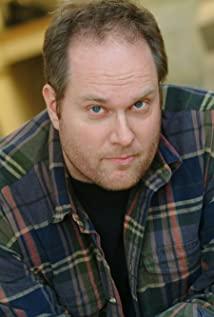Jerry's nephew was produced by his sister using sperm from the sperm bank, so she didn't know who the boy's real father was. When the boy was sixteen or seventeen years old, he was in puberty. He met a girl, and the two fought like glue. It's nothing, it's just a normal part of adolescence. But Jerry's sister was worried to death when she saw the girl. It turned out that the girl and her son looked very similar. As the two said, they were like "Siamese twins". This has to worry his mother - could it be that the father of the two children is the same person!
Jerry's sister asked the sperm agency to tell the father of her two children to determine if they were the same person. But the sperm bank firmly refused, because maintaining the privacy of sperm donors is their basic principle, otherwise no one would be willing to donate sperm. The reasons for both sides are very good, and the situation is also very sympathetic. It is really a stalemate. Because of the lawyer Jerry, the result was that the two sides met in court.
As the presiding judge in the play said, when she was young, few children were adopted, but this phenomenon is no longer surprising. The judge's words spoke of the changes in human marriage relationships over the past century, along with changes in family and family relationships. Not only adopting children, divorce, single-parent families, and out-of-wedlock childbirth are also very common in modern society. With the development of science and technology, artificial insemination has become a reality, and many women use this method to realize their desire to have children. Women who adopt this method naturally hope that their children can contain excellent genetic genes. As Jerry said, the sperm of those strong athletes and smart people who graduated from famous schools are particularly popular, and they do not know how many offspring they have produced. In a season 4 episode, a woman "cheats" a black man's sperm for the sole purpose of being trendy and having a mulatto like Obama. In fact, she doesn't have to spend so much trouble and even get involved in a lawsuit. As long as she learns from Jerry's sister and buys some from the sperm bank with the saved lawyer fees, her wish can easily come true.
The emergence of sperm banks has once again profoundly changed the mode of human reproduction. While realizing the good wishes of many people, it also poses huge ethical problems. Due to its strict anonymity, children born in this way cannot determine the blood father; at the same time, because the sperm of the same donor can produce many children, when these children grow up, they will have the appearance in the play. problem - offspring of the same donor may meet and form a family. This probability is small, but it is possible. And don't forget that people of the same blood are more likely to be attracted to each other. I remember that a TV station once broadcast a documentary program on family search. A peasant woman felt that an unknown woman in front of her was her sister who was adopted by her parents since she was a child, and both of them had the same feeling. , it can be said that the soul is connected. The two children in the play are attracted to each other because of their blood relationship. That kind of spiritual connection experience is difficult for ordinary lovers to experience. If it wasn't for the vigilance of the boy's mother, they would have almost created an ethical tragedy. The two children in the play are only half-brothers. If the possibility of future close relatives and the possibility of contact at different levels in the genealogy is calculated, the probability of such an ethical tragedy will be greatly increased. Although the phenomenon of intermarriage between close relatives and even blood relatives was common in ancient human society, it was a time when human beings were in the wild and ignorant. Today, close relatives or marriage absolutely touches the fundamental bottom line of human ethics and cannot be accepted by this society. .
More ironically, the emergence of sperm banks was originally intended to realize the good desire of human reproduction and genetic improvement, but the risks it implied were enough to physically destroy the basic needs of human reproduction, not to mention genetic improvement. . Humans have confirmed that consanguineous marriages greatly increase the likelihood of offspring inheriting genetic lesions, resulting in decreased offspring quality. Although the anthropologist Morgan discovered through research the great harm brought by intermarriage to the breeding of offspring, he still could not restrain his feelings and intermarry with his cousin. In the end, the Morgans also received "impulsive punishment" - the two Two of the three children born died, and the remaining one was dementia. Darwin, a biologist who spent his life studying evolution, also suffered from intermarriage.
The third problem with using sperm banks to breed offspring is the emotional problem of offspring. The mother, the sperm bank and the donor can handle things quietly through a paper agreement, which is as convenient as shopping in a department store. But what about the child? Maybe one day the child will ask: Where did I come from and who is my father? A paper agreement can avoid many disputes, but it cannot provide children with emotional satisfaction. While adults avoid disputes, they put children's emotions aside. After all, children are not the movable property of adults and can be handled casually by adults through contracts. In the play, Jerry's nephew's remarks in court shook everyone's heart: No one has discussed with me, if I want to know my background, does anyone in my family have cancer? Are there other diseases I'm more likely to have? Do I have siblings? Is there anyone else like me? I don't have a chance to know the answer because some people signed contracts before I was born. Those mothers who use sperm banks to have children may have considered the emotional problems of their children while realizing their fertility wishes. Fertility is not just a parent’s own problem, but also about another life, only considering the desire to realize one’s own fertility, regardless of the emotional hardships that children born in the future will suffer, is a “selfish desire that may cause pain to others ( Xiao Hanyu).
The case in this episode reminded me of Mr. Xiao Han's comment in the book "Seventeen Tones of the Gavel" about the Sterns v. Whitehead over the custody of child M. In 1985, The Whiteheads and Mr. Sterns signed a surrogacy agreement at the New York Infertility Center, stipulating that a doctor would inject Stern's sperm into Mrs. Whitehead's uterus, and the resulting child would be owned by the Sterns. The Hyatts and their children broke away from the ethical and legal relationship, and at the same time received $10,000 from Stern. As a result, after the child was born, the Whiteheads were reluctant to hand over the child to the Sterns according to the agreement based on family affection. The Turns then sued to take the child, and the case went back and forth until Mr. Stern regained custody, Mrs. Whitehead was granted motherhood, and Mrs. Stern was removed from adoption.
In the book, Mr. Xiao Han strongly criticized the irresponsible fertility agreement of the Whiteheads and the Sterns, and profoundly revealed the ethical and family sins contained in the phenomenon of childbirth through the womb. Based on his reverence for nature and his understanding of the reality of human beings’ own bounded rationality, Mr. Xiao Han also pointed out the huge danger brought by the development of modern science and technology to human beings, and predicted that in addition to creating disasters for human beings, unrestricted reproductive technology There will be no positive positive effects.
In the Bible, the secret of reproduction is hidden in the forbidden fruit on the tree of life. Adam and Eve ate the forbidden fruit before giving birth to offspring. The forbidden area of the book and God's protection of reproduction is easily pierced by microscopes and probes in the laboratory in modern times. Just like when Adam and Eve were tempted by snakes, how are modern humans reckless—they hurriedly popularized this method before it could solve the huge problem caused by sperm donation. The arrogant aura. But children are our own, and breeding offspring is also a fundamental issue related to the continuation of human civilization. Can we turn a blind eye to the problems that may arise in the future?
Adam and Eve were finally expelled from the happy Garden of Eden, so how will modern humans be punished for breaking into God's forbidden zone?
View more about Boston Legal reviews











